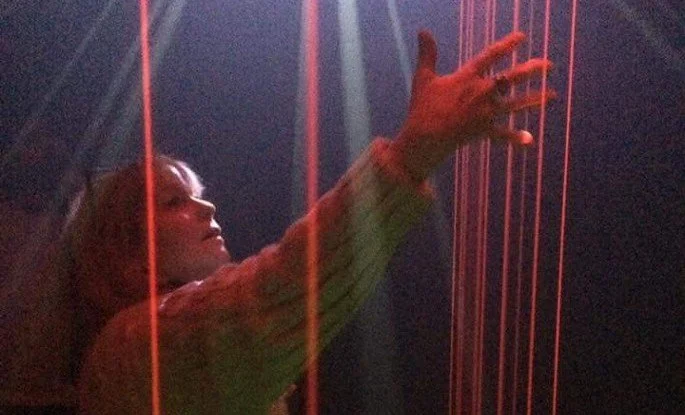I had a weird dream a few months ago. A rush of something I can only describe as "gray-ness" came toward me and I awoke to a loud voice that said:
"Evolution is Grace."
I'm a scientist and I'm fascinated with evolution. When I taught science at a Christian school I told my students that I found a God who created evolution to be far more interesting and miraculous than one who could only create non-changeable things.
Grace is an infinite number. Grace is evolution. Evolution is grace.
Grace says: everything is permissible, but not everything is beneficial.
Grace says: The LAW is fulfilled. There is no longer a system of RIGHT and WRONG. But Grace.
So anything can happen.
Anything.
Grace says there are endless possibilities and outcomes.
Grace is an infinite number.
With Grace we are out of control.
With Grace error CAN occur and error DOES occur.
Let's be honest - we hate this. We like to control things. We like predictability, security and knowledge of what the future holds -- at least to some degree.
We don't want the people we love to change too much, we don't want our bodies or our health to change too much, we want secure jobs, secure homes, secure incomes, secure economies, secure stock markets, secure political systems. We like to analyze things and put them into neat little categories so that we can feel like we understand them. So that we feel some measure of control.
Right/wrong.
Good/bad.
Dualisms.
Laws.
I'm a biologist and I like to think about spiritual things in light of biology. I feel like creation reveals a lot about the creative force behind it. I use the word "god" for that force, but you might dislike that word and prefer another one - or none at all. That's fine. I find the principles are the important thing, not the metaphors and words we use to try to describe them. A rose by any other name......
In the very essence of life – the DNA – we find “rules” (the law). Rules about replication that lead to life. But we also find that error can and does always occur. Errors that lead to variance, mutation, even death.
In religious terms, some will say that this error occurs only by chance, another will say it is God's plan, and still another will say it is NOT God’s plan, but rather a part of the "fallen-ness" of creation.
Regardless of your beliefs about whether error is PART of God’s plan , or part of human’s diverting from God’s plan (the fall), or if you believe in a God at all, we all know the error DOES occur.
Let's take DNA. In the DNA of a cell, an error in replication will occur. Many errors are benign and go nowhere. Some errors lead to death and suffering in the organism –tumors grow, cancer begins, birth defects, a non-viable fetus, disease, death.
If you were the one suffering due to this genetic error, you might call it evil.
But , this capacity for error, this mechanism that can bring death and suffering, this "evil", is in fact, the very thing that may allow a certain organism to survive environmental or ecological pressure. A particular mutation that might be detrimental in good times, might prove beneficial in different environmental conditions and might provide a survival benefit to the organism. Thus, the central aspect of our very genetic makeup that has the capacity for error – the very error that brings suffering and death, the very EVIL – IS also the very thing that also contains the capacity for change, growth, survival,
LIFE
If you were the organism that survived due to this error, you might call it good.
From death springs life.
Good and evil are bound up in the same thing.
It's not either/or, it's both/and.
In religion and philosophy the question of evil is debated. If God is good, can he create evil? If God is love, why is there evil?
But in nature error exists so that life can and will continue. It brings life.
Error need not be pigeonholed into a nice neat little box of "good" or "bad".
The debate of can love create evil, can good create evil does not need to arrive at an either/or conclusion.
It's both/and.
Both are God’s grace.
The story of the Garden of Eden is often interpreted as a story about the introduction of evil into the world. And then the question arises, "why did God even put the tree there? Why would he tempt people with evil?" And whether you read the story as allegorical, mythological or literal, the answer to that question may be the same. The very fact that God (or creation, or biology, or the ground of all being), allows for freedom for error -- is Grace.
Grace is the full openness to an infinite number of options.
Grace cannot be infinite if options are limited only to those options we call good.
Grace makes space for error. Life cannot occur without it. Grace makes life out of error. Life that results out of error is evolution – both biological , emotional and spiritual.
"First there is the fall, then there is the recovery from the fall. Both are the Grace of God” - Julian of Norwich
(To comment, click on header)









